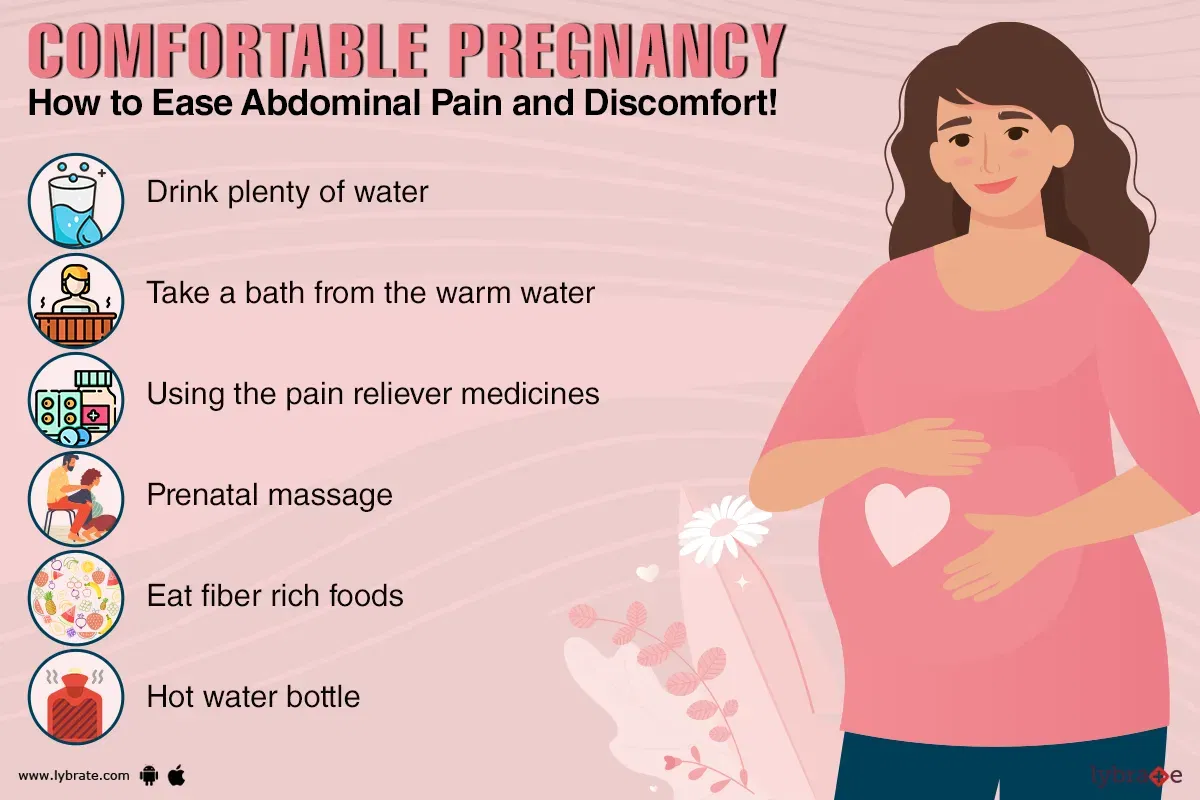
Abdominal Pains in Early Pregnancy: Causes, Symptoms, and Treatment
Abdominal pain is a common symptom during early pregnancy, affecting up to 80% of women. While most abdominal pains are harmless and resolve on their own, some can indicate an underlying medical condition that requires attention. Understanding the causes, symptoms, and treatment options for abdominal pain in early pregnancy can help you navigate this common experience with confidence.
Causes of Abdominal Pain in Early Pregnancy
- Uterine Growth: As the uterus expands to accommodate the growing fetus, it can stretch the ligaments that support it, causing sharp, stabbing pains in the lower abdomen or pelvis.
- Round Ligament Pain: The round ligaments, which connect the uterus to the groin, stretch and thicken during pregnancy. This can lead to sharp, shooting pains in the lower abdomen or groin, especially when changing positions or getting out of bed.
- Gas and Bloating: Hormonal changes during pregnancy can slow down digestion, leading to gas and bloating. This can cause discomfort and pain in the abdomen.
- Constipation: Pregnancy hormones can also relax the muscles in the intestines, leading to constipation. Straining to pass hard stools can cause pain in the abdomen.
- Ectopic Pregnancy: An ectopic pregnancy occurs when the fertilized egg implants outside the uterus, typically in the fallopian tube. This can cause severe abdominal pain, often accompanied by vaginal bleeding.
- Miscarriage: Abdominal pain, especially accompanied by vaginal bleeding, can be a sign of miscarriage.
Symptoms of Abdominal Pain in Early Pregnancy
Abdominal pain in early pregnancy can vary in intensity and location. Common symptoms include:
- Sharp, stabbing pains in the lower abdomen or pelvis
- Shooting pains in the lower abdomen or groin
- Dull, aching pain in the abdomen
- Gas and bloating
- Constipation
- Severe pain accompanied by vaginal bleeding
When to Seek Medical Attention
Most abdominal pains in early pregnancy are harmless and resolve on their own. However, it’s important to seek medical attention if you experience:
- Severe pain that doesn’t improve with rest or over-the-counter pain relievers
- Pain accompanied by vaginal bleeding
- Pain that is accompanied by fever, chills, or nausea and vomiting
- Pain that worsens or changes in character
Treatment for Abdominal Pain in Early Pregnancy
Treatment for abdominal pain in early pregnancy depends on the underlying cause. For most cases, home remedies and lifestyle changes can provide relief:
- Rest: Resting can help reduce uterine contractions and ligament pain.
- Warm Compress: Applying a warm compress to the abdomen can help relax muscles and relieve pain.
- Sitz Bath: Sitting in a warm bath can help soothe pelvic pain.
- Over-the-Counter Pain Relievers: Acetaminophen (Tylenol) or ibuprofen (Advil) can help relieve mild to moderate pain.
- Diet: Eating a healthy diet, including plenty of fiber and fluids, can help prevent gas and constipation.
- Exercise: Gentle exercise, such as walking or swimming, can help improve circulation and reduce pain.
For more severe pain or underlying medical conditions, your doctor may recommend:
- Pelvic Rest: Avoiding strenuous activity or intercourse can help reduce pain caused by uterine growth or round ligament pain.
- Medication: Your doctor may prescribe stronger pain relievers or antispasmodics to manage severe pain.
- Surgery: In rare cases, surgery may be necessary to treat an ectopic pregnancy or other underlying medical conditions causing abdominal pain.
Prevention of Abdominal Pain in Early Pregnancy
While not all abdominal pains can be prevented, there are some steps you can take to reduce your risk:
- Maintain a Healthy Weight: Being overweight or obese can increase the risk of round ligament pain.
- Exercise Regularly: Regular exercise can help strengthen the muscles that support the uterus and reduce pain.
- Eat a Healthy Diet: Eating a balanced diet with plenty of fiber and fluids can help prevent gas and constipation.
- Avoid Smoking and Alcohol: Smoking and alcohol can worsen abdominal pain.
Conclusion
Abdominal pain is a common experience during early pregnancy, and most cases are harmless and resolve on their own. However, it’s important to be aware of the potential causes and symptoms of more serious conditions. By understanding the causes, symptoms, and treatment options for abdominal pain in early pregnancy, you can navigate this common experience with confidence and seek medical attention when necessary.